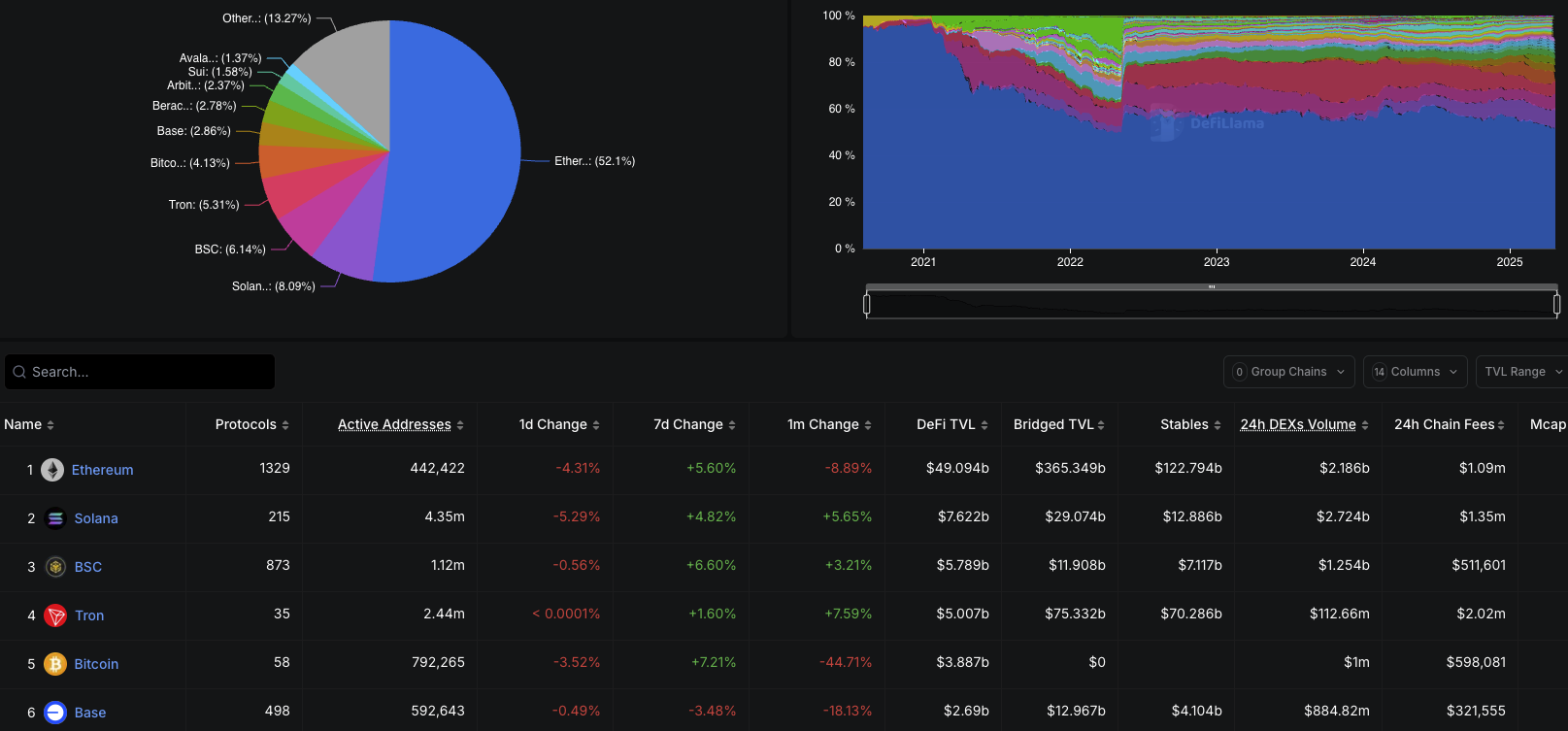
Multisig cold wallets are highly secure but not immune to attacks, as demonstrated by incidents like the February 2025 Bybit hack, emphasizing the need for additional precautions.
Dig Deeper, Invest Smarter

Multisig cold wallets are highly secure but not immune to attacks, as demonstrated by incidents like the February 2025 Bybit hack, emphasizing the need for additional precautions.

BlackRock has updated its S-1 registration statement for the iShares Bitcoin Trust (IBIT), introducing new language that outlines the potential risks posed by quantum computing.
This revision, filed on May 9, reflects growing industry awareness of how advanced computing technologies could impact cryptographic systems used in digital assets.
In the filing, the asset manager warned that future advancements in quantum computing may undermine the security framework underpinning Bitcoin.
Should quantum technology evolve far beyond its current state, it could render the cryptographic algorithms used by Bitcoin obsolete.
This could allow malicious actors to exploit vulnerabilities, including gaining unauthorized access to wallets that store Bitcoin for the trust or its investors.
While quantum computing is still developing, BlackRock emphasized that the technology’s full capabilities remain uncertain.
However, the firm considers it important to disclose any theoretical threats that could affect the performance or security of its crypto investment products.
Bloomberg ETF analyst James Seyffart said the update is a key factor that is standard in ETF filings. He explained that issuers routinely list all potential threats, no matter how remote.
“To be clear. These are just basic risk disclosures. They are going to highlight any potential thing that can go wrong with any product they list or underlying asset thats being invested in. It’s completely standard. And honestly makes complete sense,” Seyffart added.
Notably, BlackRock’s filing also covers concerns about regulatory actions, energy consumption, mining concentration in China, network forks, and prior market events like the collapse of FTX.

Despite these warnings, IBIT remains the largest spot Bitcoin ETF on the market. It has recorded 19 consecutive days of inflows, attracting more than $5.1 billion during the reporting period.
In a separate filing, Seyffart revealed that BlackRock also amended its S-1 application for its spot Ethereum ETF.
The new version includes plans to support in-kind creation and redemption—a model allowing investors to swap ETF shares directly for Ethereum, instead of using cash.
This structure could lower transaction costs and reduce market friction. It also avoids converting crypto into fiat currency, which is currently required under the cash-based model. The approach may help issuers minimize price slippage and save on trading fees.
The SEC has yet to approve in-kind redemption models for crypto ETFs, but analysts expect progress this year.
“Eric Balchunas & I expect SEC approval for in-kind at some point this year…Notably, the first application for any of the Ethereum ETFs to allow In-kind create/redeem has a final deadline around ~10/11/25,” Seyffart noted.
BlackRock’s filing follows the firm’s meeting with the US Securities and Exchange Commission (SEC) to discuss crypto ETF staking and securities tokenization.
The post BlackRock Warns of Quantum Computing Threat in Bitcoin ETF Risk Disclosure appeared first on BeInCrypto.

Kraken, one of the largest crypto exchanges in the United States, has officially listed BNB, the native token of the BNB Chain ecosystem developed by Binance.
This move has captured the attention of the crypto community. Still, it is also seen as a strategic turning point, potentially paving the way for a wave of BNB listings on other US exchanges like Coinbase, Gemini, and more.
US exchanges sidelined BNB for a long time due to legal concerns surrounding Binance, its parent company. In 2023, the US Securities and Exchange Commission (SEC) filed a lawsuit against Binance, alleging the issuance of unregistered securities, including BNB.
This legal scrutiny made many exchanges hesitant to list the token due to potential regulatory risks.
However, a turning point came in late 2024 when Binance settled with US authorities. The exchange agreed to pay a $4.3 billion fine and implement stricter compliance reforms. This resolution largely cleared the “legal hurdle” for BNB, potentially influencing Kraken’s decision to list the token.
Kraken’s listing of BNB may not be an isolated event. It reflects a broader shift in the regulatory environment for cryptocurrencies in the United States. In January 2024, the SEC approved a series of spot Bitcoin ETFs—a milestone hailed as a “historic moment” that legitimized Bitcoin and other digital assets in the eyes of institutional investors.
As regulators establish clearer frameworks for digital assets, the US market is gradually opening up to altcoins, including BNB.
With positive developments under President Donald Trump’s administration following his inauguration, this could be an opportune moment for other exchanges to reassess their stance on BNB.
Beyond being a native token, BNB powers one of the fastest-growing blockchain ecosystems—BNB Chain. According to BNB Chain’s weekly ecosystem report, in the first week of April 2025 alone, the network recorded over 3.3 million daily active users.
The total transaction value surpassed $7.1 billion. Major DeFi, GameFi, and AI projects are thriving on this platform.

Moreover, BNB Chain is implementing notable technical advancements in its 2025 roadmap. They plan to reduce block processing times to under 1 second, enabling gasless transactions and integrating artificial intelligence (AI) into decentralized applications (dApps). These factors make BNB a strategic asset for exchanges, attracting DeFi users.
Kraken’s decision to list BNB could trigger a domino effect across the industry. It signals that US exchanges may begin to recognize BNB as a legitimate and high-potential asset. This also reflects a shift in the strategy of US exchanges—from a defensive stance against legal risks to a proactive approach to leveraging the potential of the Web3 ecosystem.
The post Kraken Lists BNB: A Sign of Changing Regulatory Winds in the US? appeared first on BeInCrypto.

The US Securities and Exchange Commission (SEC) has charged Ramil Palafox, a dual US-Philippine national, with orchestrating a $198 million crypto scam.
From January 2020 to October 2021, Palafox ran a Ponzi-style scheme through his company, PGI Global, defrauding many investors.
According to the press release, the regulator claims that Palafox raised about $198 million from investors globally. He promised them substantial returns from crypto and foreign exchange trading.
Nonetheless, the SEC alleges that Palafox misused over $57 million of the funds for personal purchases.
“As alleged in our complaint, Palafox attracted investors with the allure of guaranteed profits from sophisticated crypto asset and foreign exchange trading, but instead of trading, Palafox bought himself and his family cars, watches, and homes using millions of dollars of investor funds,” Associate Director of the SEC’s Philadelphia Regional Office Scott Thompson stated.
Furthermore, the company operated with a multi-level marketing (MLM) structure. Palafox attracted investors by claiming expertise in the crypto sector and offering an artificial intelligence (AI)-driven trading platform. Yet, both of these claims proved to be fraudulent.
The scheme eventually collapsed in 2021, resulting in significant financial losses for investors.
“The SEC’s complaint, filed in the US District Court for the Eastern District of Virginia, charges Palafox with violating the anti-fraud and registration provisions of the federal securities laws,” the press release detailed.
The SEC demands that Palafox return ill-gotten gains and pay civil penalties. The regulator has also asked for a permanent injunction to prevent Palafox from engaging in similar activities in the future. Additionally, the US Attorney’s Office has filed criminal charges.
Meanwhile, in a separate case, a federal jury indicted Iranian national Behrouz Parsarad for founding and operating a dark web marketplace. According to the US Office of Public Affairs, the Nemesis market facilitated the illegal sale of drugs, including fentanyl and other controlled substances. The marketplace was also involved in criminal activities like stealing financial data and distributing malware.
Between 2021 and 2024, Nemesis processed over 400,000 orders. In addition to drug trafficking, Parsarad is also charged with money laundering for using crypto to conceal the proceeds of illegal activities.
“Nemesis users were not allowed to conduct transactions in official, government-backed currencies,” the press release read.
The accused now faces a mandatory minimum sentence of 10 years in federal prison, with a maximum penalty of life if convicted.
Previously, BeInCrypto highlighted that the FBI arrested Anurag Pramod Murarka for laundering over $24 million using the dark web. The cases highlight the US government’s intensified focus on regulating the cryptocurrency sector and combating cybercrime.
The post Crypto Scam Fallout: SEC Charges Ramil Palafox with $198 Million Fraud appeared first on BeInCrypto.
